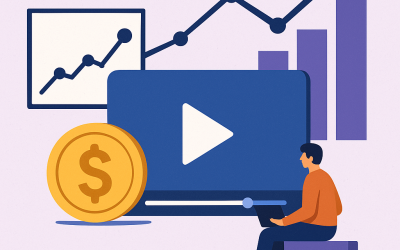GDPR & Game Developers
In May 2018, people across Europe received a flood of emails about privacy policy updates. This surge was due to the General Data Protection Regulation (GDPR), which has since transformed how businesses collect, store, and use personal data—especially in industries like gaming that rely on user data for monetization.
For game developers and advertisers, GDPR compliance is crucial. Here’s a breakdown of GDPR’s purpose, its impact on data collection and user consent, and how it affects game monetization.
Contents
What is GDPR?
The General Data Protection Regulation (GDPR), or Regulation (EU) 2016/679, is a European Union law that protects EU residents’ personal data. It replaced the Data Protection Directive (Directive 95/46/EC) and gives people more control over their data. It also simplifies regulations across the EU, making it easier for businesses to operate internationally while respecting user privacy.
GDPR went into effect on May 25, 2018. It applies to any company that handles data from EU residents, regardless of location.
GDPR vs. ePrivacy
Continuing on GDPR & Game Developers post, People often mention GDPR along with the ePrivacy Regulation. Although both protect privacy, they focus on different areas:
- GDPR protects personal data and how companies process it.
- ePrivacy protects the confidentiality of digital communications, including emails and messages.
Both regulations work together to create a comprehensive privacy framework, but GDPR is more relevant for data-driven businesses like game development.
GDPR’s Impact on Users and Their Rights
GDPR gives EU residents (referred to as “data subjects”) specific rights over their data:
- Right to Be Informed: Users must know about data collection and the purpose of processing.
- Right of Access: Users can check if a company is processing their data.
- Right to Rectification: Users can ask to correct inaccurate personal data.
- Right to Erasure: Also known as the “right to be forgotten,” users can request data deletion.
- Right to Restrict Processing: Users can limit data processing if they contest its accuracy or if processing is unlawful.
- Right to Data Portability: Users can obtain their data in a readable format to transfer it elsewhere.
- Right to Object: Users can oppose processing, especially for marketing.
These rights mean that companies must prioritize transparency and provide users with options to control their data.
Types of Data Covered by GDPR
Continuing on GDPR & Game Developers post, GDPR applies to several types of data. Here’s a quick overview:
- Personal Data: This includes any data that can identify a person, like names, email addresses, IP addresses, or device IDs.
- Anonymous Data: Data stripped of all identifying elements that cannot trace back to an individual.
- Pseudonymous Data: Data modified to hide identities, like hashed data, that could still identify someone if linked with other data.
Game developers often handle personal and pseudonymous data, like IP addresses and device IDs, which GDPR protects.
How GDPR Impacts Game Developers and Partners
Game developers and their partners rely heavily on user data, including personal and pseudonymous data. GDPR requires companies to:
- Obtain Clear User Consent: Companies must ask users for permission before collecting personal data. Consent requests should be clear and easy to find.
- Implement Strong Data Protections: Companies must encrypt and pseudonymize all personal data to prevent breaches.
- Ensure Data Security: GDPR mandates that companies secure all personal data, including IP addresses and device IDs, at all times.
- Share Responsibility with Partners: Companies must ensure that their advertising and data partners also comply with GDPR by establishing agreements and monitoring data use.
For game developers, the biggest challenge is obtaining consent and securely handling data while complying with GDPR. For example, using an ad network like AppLixir’s Rewarded Video Ads, which relies on anonymous and pseudonymous data, still requires clear user consent.
GDPR and Game Monetization: Adapting to New Realities
For developers who rely on ads to monetize games, GDPR affects how data is collected and used in personalized advertising. Developers must transparently inform users about:
- Data Usage: Explain why data is collected and how it’s used.
- Third-Party Data Sharing: Disclose any data sharing with ad networks or partners.
- Data Retention: Inform users about data storage duration and deletion timelines.
To comply, companies should collect consent at the point of data collection and continuously review data security standards. GDPR’s consent requirements also mean companies need to re-evaluate any practices that might connect pseudonymous data back to individuals.
AppLixir’s GDPR Compliance
Continuing on GDPR & Game Developers post, Like many ad networks, AppLixir Reward Video Ads uses anonymous and pseudonymous data to show relevant ads. In response to GDPR, AppLixir updated its Privacy Policy to outline how it collects, uses, and protects user data. The policy also informs users of their rights to access, update, or delete their data.
AppLixir’s commitment to privacy-first practices helps developers meet GDPR standards while maintaining relevant, data-driven ads.
Conclusion: A Privacy-Centric Monetization Strategy
GDPR has reshaped game monetization strategies by prioritizing user privacy. For game developers and advertisers, GDPR requires transparency in data use, secure storage practices, and compliant partnerships.
By aligning with GDPR and respecting data privacy, companies can avoid penalties and foster user trust. Embracing a privacy-centric monetization strategy helps balance revenue and user rights—a critical factor for long-term success in the gaming industry.



